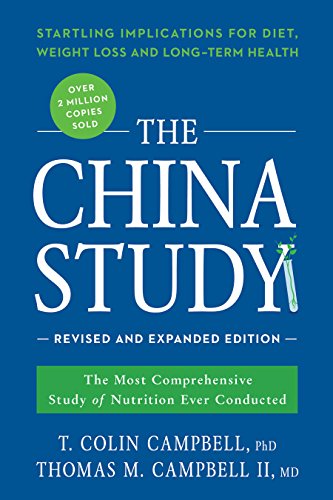

This article is an excerpt from the Shortform summary of "The China Study" by Colin Campbell. Shortform has the world's best summaries of books you should be reading.
Like this article? Sign up for a free trial here .
By 2050, 14 million people will have Alzheimer’s, which is a leading cause of death in the U.S. Alzheimer’s, a form of dementia, develops when the protein beta-amyloid forms plaque in the brain. Is there an “Alzheimer’s diet” that could keep you from being one of those 14 million people?
Although there’s no definitive cause of Alzheimer’s, researchers agree that lifestyle factors such as diet play a role. Learn how adopting an Alzheimer’s prevention diet can help protect your brain and get suggestions on how you can smoothly incorporate more plant foods into your diet.
Alzheimer’s: 4 Risk Factors
Before we look at the Alzheimer’s diet, let’s look at the four risk factors of Alzheimer’s and how your diet affects these risk factors.
Alzheimer’s Risk Factor #1: Genetic Predisposition
Genes play a role, but this role is minimal compared with other factors.
Studies have shown this time and time again. Japanese men living in Japan have a lower rate of Alzheimer’s than Japanese American men living in Hawaii. Africans have a lower rate of Alzheimer’s than African Americans. Because in each of these studies the groups compared shared a genetic heritage, the findings demonstrate that genes are not as important as environmental factors in the formation of Alzheimer’s.
Alzheimer’s Risk Factor #2: Hypertension
Hypertension can be controlled by eating fewer animal foods. Therefore, the Alzheimer’s prevention diet involves increasing your consumption of plant foods and decreasing your consumption of animal foods.
Alzheimer’s Risk Factor #3: High Blood Cholesterol
High blood cholesterol can also be controlled by eating fewer animal foods.
Alzheimer’s Risk Factor #4: Free Radicals
There’s a pattern here, and it’s a key to the Alzheimer’s prevention diet. Free radicals can also be controlled by eating fewer animal foods. Animal protein escalates the damage of free radicals, while plant foods, which contain antioxidants, fight free radicals.
Alzheimer’s Prevention Diet
There’s a lot of research supporting the idea that Alzheimer’s isn’t inevitable. We can dramatically lower our risk by changing our diets. This is why adopting an Alzheimer’s diet now is so important.
Scientists have found the following associations between diet and brain health:
- Adding three more servings of fruits and vegetables to your daily diet can reduce your risk of stroke by 22%. Reducing your stroke risk reduces your risk of vascular dementia.
- Populations that eat more fat and cholesterol and fewer grains have higher rates of Alzheimer’s.
- Low blood levels of folic acid, found in plants, increases risk.
- High blood levels of homocysteine, found in animal foods, increases risk.
- Older adults who consume the most vitamin C and beta-carotene score the best on tests of mental acuity.
- Vitamins E and C, found in plant foods, and selenium, found in both animal and plant foods, reduce free radical activity and are associated with less memory loss.
The point of all these studies? Eat more plant foods and fewer animal foods.
Guide to the Alzheimer’s Diet
You might be convinced by the extensive data associating animal foods with Alzheimer’s. The problem now is imagining yourself actually giving up meat and dairy. Is this feasible? Could you really stop eating animal foods?
It’s doable, and you may find that the benefits go far beyond preventing Alzheimer’s.
What to Eat on the Alzheimer’s Diet
- Eat as much as you want of fruits, vegetables, legumes, mushrooms, nuts, and whole grains (this includes whole-grain bread and pasta).
- Limit refined foods (white bread, cakes, pastries, crackers), fish, and added oils (including corn, peanut, and olive oils).
- Avoid meat, poultry, dairy, and eggs.
Four Tips for Following the Alzheimer’s Diet
Following these suggestions will help ease your transition into the Alzheimer’s prevention diet.
Alzheimer’s Diet Tip #1: Eat a Variety of Foods
This is critical both for getting the nutrients you need and staying interested in the Alzheimer’s prevention diet.
Alzheimer’s Diet Tip #2: Eat Delicious Foods
You won’t commit to an Alzheimer’s diet if you’re not interested in what you’re eating. Explore different restaurants and try new recipes to find meals that you love. Asian and Middle Eastern restaurants often offer many plant-based options. They also use spices in unique and exciting ways that will make you forget to miss the meat.
Alzheimer’s Diet Tip #3: Don’t Go Hungry
Even if you’re trying to lose weight, eat enough. On an Alzheimer’s prevention diet, you’ll probably lose weight without restricting calories, and being hungry makes you vulnerable to falling back into your old eating patterns.
Alzheimer’s Diet Tip #4: In the Beginning, Don’t Be Afraid of Spending Money
Cutting meat and dairy means cheaper grocery bills in the long run, but at the beginning of your journey with the Alzheimer’s prevention diet, you may find that the process of trying new foods and figuring out what you like involves spending more money. This is temporary, and it’s worth it.
Five Transition Hurdles
Beware of some of the snags that could derail your efforts to follow a plant-based, Alzheimer’s prevention diet.
Hurdle #1: Adjusting to New Restaurants and Offerings
You probably won’t be able to order your usual when eating out, and you may not be able to eat at your usual spots. This will take flexibility and the willingness to try new things.
Hurdle #2: Time
Learning new recipes and finding new restaurants takes some extra time, but it’s worth it to discover meals that you truly enjoy.
Hurdle #3: Upset Stomach
As your digestive system adjusts, you might not feel well. This is normal and won’t last long.
Hurdle #4: Prejudice
A meal doesn’t seem like a real meal without meat (especially lunch and dinner). You need to overcome this bias toward meat and realize that this is a cultural assumption rather than the truth.
Hurdle #5: Lack of Support
People may feel threatened by your new focus on health and preventing Alzheimer’s. They might feel pressure to face their own unhealthy habits, which most people don’t want to do.
As you adjust to an Alzheimer’s prevention diet, your tastes will change. You’ll lose your desire for meat and dairy. Because animal-based foods overpower other flavors and dull your tastebuds, removing them will allow you to taste your food in a whole new way.
Alzheimer’s Diet: Summary of Recommendations
- Eat as much whole, plant food as you want. Don’t go hungry.
- Spend the money, time, and energy to find plant foods that are absolutely delicious.
- Try restaurants offering choices from another part of the world.
- Eschew moderation. Try going “cold turkey” on animal products for a month.
Making small (and big!) changes with the Alzheimer’s diet can help ensure you have a healthy brain for years to come.
———End of Preview———

Like what you just read? Read the rest of the world's best summary of "The China Study" at Shortform . Learn the book's critical concepts in 20 minutes or less .
Here's what you'll find in our full The China Study summary :
- Why animal proteins (meat, milk) might cause cancer, diabetes, and other diseases
- Why the medical institution is structured to hide the truth about disease and food
- The precise diet you'll need to eat to live longer and feel happier






